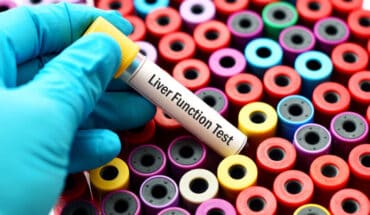“If people don’t get the bowel care they need, they could have a stroke and die, it’s as simple as that.” Healthcare professionals and patients across England and Wales have shared their support for a new awareness day, led by Spinal Injuries Association and backed by the Department of Health and Social Care, that highlights the need for paralysed bowel care in general healthcare settings for people with a central nervous system disease or injury.
Paralysed bowels affect hundreds of thousands of people in the UK with central nervous system conditions that impact the brain and/or spinal cord causing a loss of bowel function and can put a person’s safety at risk if not properly managed.
While no official figures on the prevalence of paralysed bowels exist, it is estimated that over 457,000 people in the UK with neurological conditions, including spinal cord injuries, multiple sclerosis, Parkinson’s disease, and spina bifida, experience the symptoms of paralysed bowels.
Despite the severity of the condition, not all NHS trusts have a bowel care policy and not all nurses are trained in paralysed bowel care, meaning patients are met with a postcode lottery when it comes to entering general healthcare settings.
In the 2024 ‘What Matters?’ survey conducted by Spinal Injuries Association, 54% of people with a spinal cord injury reported substandard bowel care after being admitted as an inpatient.
Cath Williams, clinical advisor to the Association for Continence Professionals, said: “Incontinence is accepted within hospitals, unfortunately, but it is about getting people to understand the difference between that and not opening their bowels at all. This has a specific patient safety element. If people don’t get their bowel care they need, they could have a stroke and die, it’s as simple as that.”
Carol Adcock, spinal cord injury specialist nurse lead at Spinal Injuries Association, explained the significance of improper bowel care to someone with paralysed bowels:
“Imagine you are unwell, trapped in bed. Despite asking for help you have been told you cannot go to the toilet. Your bowel is becoming so full that there is a serious risk of bowel perforation but before this occurs, you are terrified because you know if this doesn’t kill you then the risk of your blood pressure reaching such high levels could kill you anyway, but no one is listening. You lay in the bed with all sense of dignity and control lost, helpless.”
Lara Davies, a nurse from North Wales, only became aware of the need for paralysed bowel care after her son had a spinal stroke in 2016, despite her years of training. She said: “There’s not enough training on paralysed bowel, definitely not. That needs to change in the universities because we’re just not getting it in the hospital.”
This year marks the inaugural National Paralysed Bowel Awareness Day, which aims to increase awareness of the condition, while charities work with the government and the NHS to increase training among healthcare professionals to improve patient outcomes.
To mark the first awareness day, charities came together alongside MPs and healthcare professionals last night at a House of Lords reception, attended by Minister of State for Social Security and Disability, RT Hon Sir Stephen Timms MP who said:
“It’s vital that people with spinal injuries get the right care, which is why this first National Awareness Day for Paralysed Bowels is so important and should be the first of many. We’re committed to breaking down barriers people with injuries and disabilities face, and our upcoming reforms to the Health and Disability benefits system will ensure people are given the support they need to unlock their full potential.”
Nik Hartley OBE, CEO of Spinal Injuries Association, said:
“We are so pleased the government has agreed to dedicate a day to raise awareness of this issue. We will campaign together to ensure everyone, wherever they live, can be supported by trained nurses and carers.”
Case Studies:
Cath Williams, clinical advisor to the Association of Continence Professionals, saw firsthand the impact of the lack of bowel care training when her husband, who has a spinal cord injury, was admitted to hospital with an infection. She said: “I was told there was nobody there who could carry out his bowel care and the manual evacuation he required. I was so frustrated and disappointed. They explained to me they knew they had a problem but were unable to do so, so I carried it out myself.
“Incontinence is accepted within hospitals, unfortunately, but it is about getting people to understand the difference between that and not opening their bowels at all. This has a specific patient safety element. If people don’t get their bowel care they need, they could have a stroke and die, it’s as simple as that.”
Lara Davies, a nurse from Rhuddlan in North Wales, first became aware of the issues with paralysed bowels when her son had a spinal stroke in 2016, leading to a spinal cord injury that affected the function of his bladder and bowels. Despite her years of training as a nurse, Lara had not received training in paralysed bowel care and it was only after seeking specialist advice from Carol Adcock, spinal cord injury specialist nurse lead at Spinal Injuries Association, that she and hospital staff were able to establish a proper bowel routine for her son.
Lara said: “It amazed me when I look back to my own nursing career. I remember a patient coming in who needed manual evacuation every other day, and none of the nurses would do it. I know from my colleagues that I used to work with, they had a patient in who had a spinal cord injury and needed manual evacuation or rectal stimulation and they had no nurses in the whole of the hospital that could do it for them.
“There’s not enough training on paralysed bladder and bowel, definitely not. That needs to change in the universities because we’re just not getting it in the hospital.”
Note on the prevalence of paralysed bowels:
Statistic comes from: Emmanuel A. Neurogenic bowel dysfunction [version 1; peer review: 2 approved]. F1000Research 2019, 8(F1000 Faculty Rev):1800 (https://doi.org/10.12688/f1000research.20529.1)
“Amongst those suffering from central nervous system injury or disease, bowel symptoms are experienced commonly. Of those with SCI [spinal cord injury], up to 95% report constipation and 75% have experienced episodes of fecal incontinence. Two-thirds of individuals with MS experience constipation and/or fecal incontinence, and in spina bifida patients only 32% report normal bowel function. Constipation affects over 25–63% of those with Parkinson’s disease (depending on definition used). Stroke may also result in neurogenic bowel dysfunction (NBD), with chronic fecal incontinence occurring in 15% of patients.”
105,000 people in the UK have spinal cord injury (Spinal Injuries Association). 99,750 (95%) have symptoms of paralysed bowels.
150,000 people in the UK have Multiple Sclerosis (MS Society). 99,000 (66%) have symptoms of paralysed bowels.
There are 1.3 million stroke survivors in the UK (Stroke Association). 195,000 (15%) have symptoms of paralysed bowels.
145,000 people in the UK have Parkinson’s disease (Parkinson’s UK). 63,800 (44%) have symptoms of paralysed bowels.
Total = 457,550 people
- Gut microbiome could delay onset of type 1 diabetes - 3rd April 2025
- The da Vinci 5 Robot Is Set To Transform Bariatric Care: - 31st March 2025
- Beyond money: the hidden drivers fuelling child food insecurity - 31st March 2025






